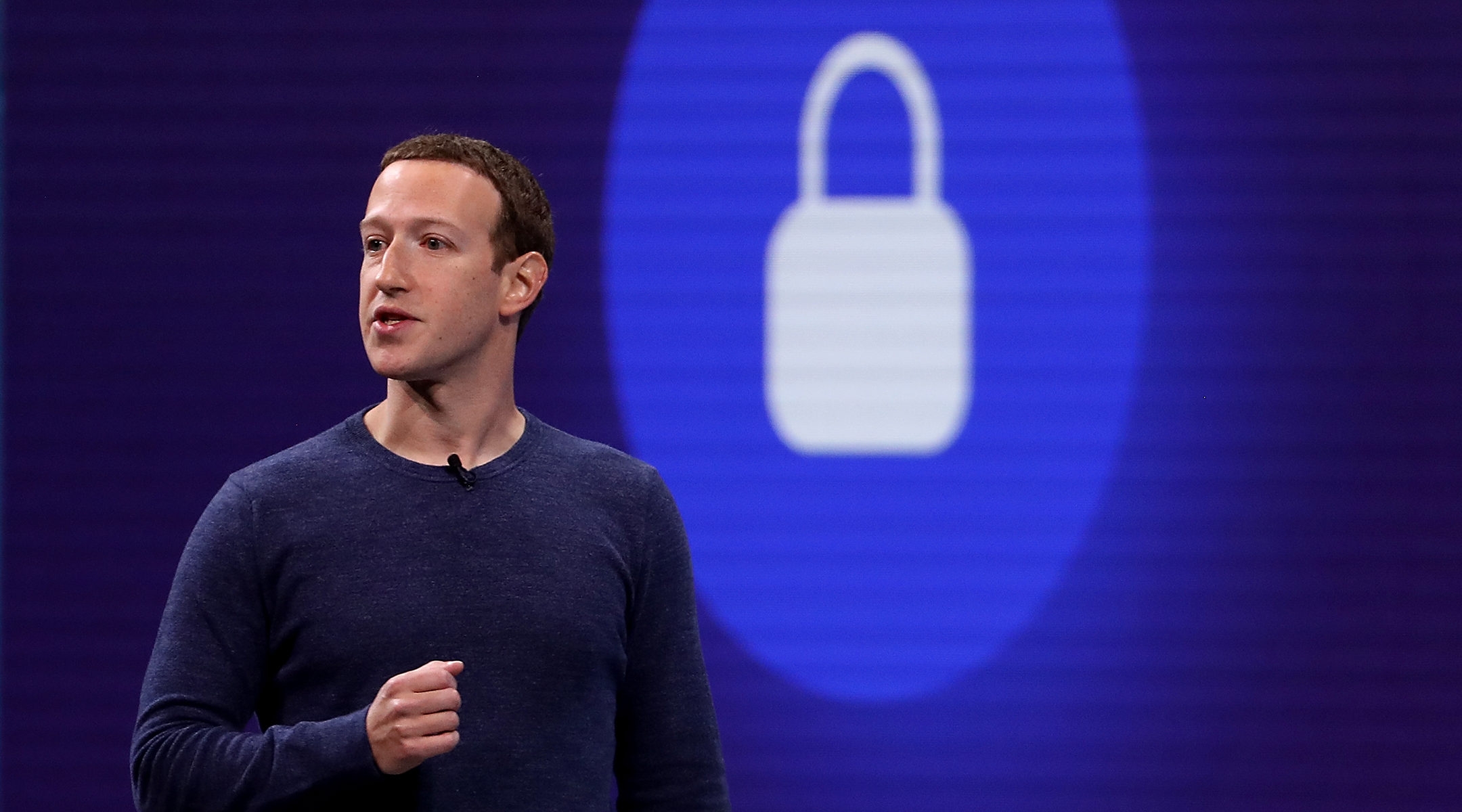(JTA) — Facebook has blocked President Donald Trump’s account until at least Jan. 21, the first time a major social network has denied access indefinitely to the sitting president of the United States.
Facebook CEO Mark Zuckerberg announced the policy Thursday, citing the president’s conduct following the mob violence at the Capitol.
“We believe the risks of allowing the President to continue to use our service during this period are simply too great,” Zuckerberg posted. “Therefore, we are extending the block we have placed on his Facebook and Instagram accounts indefinitely and for at least the next two weeks until the peaceful transition of power is complete.”
Anti-Defamation League CEO Jonathan Greenblatt, whose organization helped organize an ad boycott of Facebook last year in protest of its inaction on hate speech, praised Zuckerberg for what he called the “obvious” decision and called on other networks to do the same.
Twitter has temporarily blocked Trump, and Facebook’s policy also applies to Instagram, which Facebook owns.
“Good on @Facebook for doing the right thing,” Greenblatt tweeted. “I strongly implore @Jack [Dorsey, the Twitter CEO] and @Twitter to follow suit — and that it will be permanent. Based on his disgraceful actions, @realDonaldTrump does not deserve privilege of these platforms.”
In the past, Facebook has allowed controversial content from the president that Twitter shielded or labeled. But that policy changed on Wednesday, when Trump posted a video and other statements that were equivocal regarding the violence, and that praised or encouraged the rioters.
The announcement is a stunning shift for Facebook, not only because it’s the first time a major social network has blocked the sitting president of the United States from using its platform for such an extended period. Facebook has been criticized for years for not doing enough to censor hateful posts and disinformation, including from Trump.
Last year, the ADL, NAACP and other civil rights groups launched an ad boycott of Facebook over its hate speech and Holocaust denial polices. In the run-up to the 2020 election, the platform and others announced restrictions against hate speech and Holocaust denial, as well as a ban on the pro-Trump QAnon conspiracy theory, which has anti-Semitic elements — though it’s unclear how well the Holocaust denial ban actually worked.
JTA has documented Jewish history in real-time for over a century. Keep our journalism strong by joining us in supporting independent, award-winning reporting.






